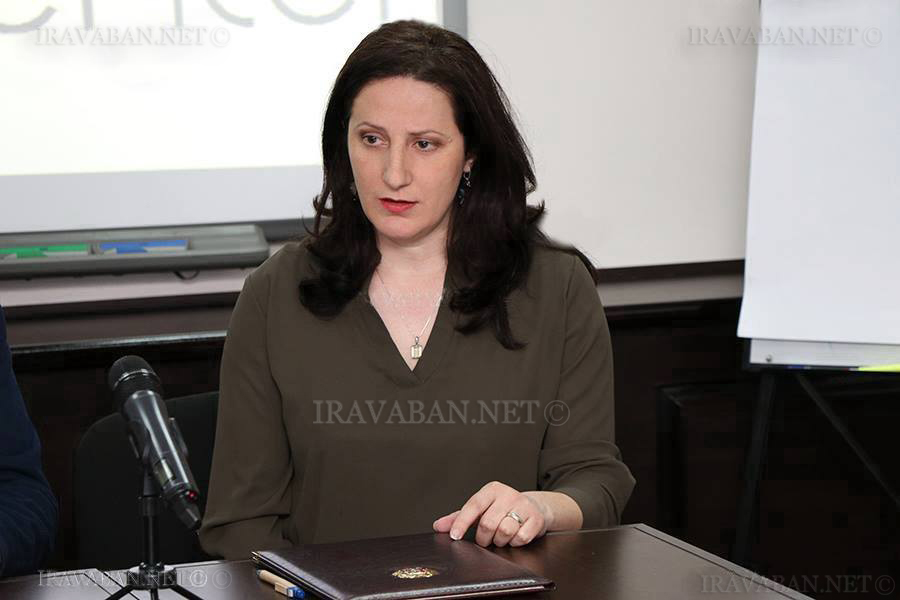The CSO Anti-Corruption Coalition of Armenia հas its Important Role in the Field: Arpine Hakobyan

The CSO Anti-Corruption Coalition of Armenia has its important role in the field. Arpine Hakobyan, President of the “NGO Center” Non-Governmental Organization and Chairwoman of the Governing Board of the CSO Anti-Corruption Coalition of Armenia, told Iravaban.net.
Referring to the discussion entitled “Course of Judiciary Reform in Post-Revolution and Post-Election Armenia” organized by the Ministry of Justice in cooperation with within the framework of the operational program “Partnership for Open Society Initiative” of Open Society Foundations-Armenia, Arpine Hakobyan noted, “Frankly speaking, there was no discussion of many constructive proposals; what was done was presented in general. The discussion was effective at least from the point of view that some statistics were presented, for example, in connection with considering of conclusions related to integrity, but clearly in the aspect what can be done, was not effective,” Arpine Hakobyan said.
She also added that in any case the CSO Anti-Corruption Coalition of Armenia should have been invited to the discussion.
“Regardless of everything, because the CSO Anti-Corruption Coalition of Armenia has an important role in the field and in my opinion it is not right to exclude it from the event. Especially when we made a statement where there are clear proposals and that proposals could have presented for discussion with a wider range,” she said.
Arpine Hakobyan said that she generally agrees with both the analysis and the package of proposals regarding the statement made by the Coalition on 1 November regarding the integrity checking and responsibility of the judges under the extraordinary conditions (of transitional justice) and the guarantees of the independence and effective functioning of the court.
“If I express a general opinion, we should consider integrity as a broad concept within the framework of the Institute of Transitional Justice, and it is not just checking the judge’s honesty and judicial ethics, but the implementation of vetting itself, which, in my opinion, presupposes inspection and purification, and in this case, vetting is a crucial element of very important institutional reform. The introduction of vetting can lead to the reform of many systems,” the Chairwoman of the Governing Board of the CSO Anti-Corruption Coalition of Armenia said.
He also mentioned that the conclusions are strictly confidential and within the framework of that secrecy it is impossible to carry out effective public control, analyze, and understand what conclusions are provided, whether they are taken into account or not and how complete the information is.
“Another shortcoming that is worth to mention is the practice of renewal of the composition of already functioning judges through appointing new judges. Here, as it is well known, for many years the recruitment of judges in the judiciary has been carried out from persons who have worked in the judiciary, that is, the secretary of the sessions, the assistant, and the expert. And this practice restricts the inclusion of other, non-court-related but professional lawyers to be included as judges. I think this is again an important approach in terms of not leaving out professional lawyers, as well as in terms of renewal,” Arpine Hakobyan said.
—————————
Iravaban.net has already referred to the veiled event dedicated to the judicial reforms of the Ministry of Justice and some civil society organizations that have become partners.
To recall that on 1 November, the CSO Anti-Corruption Coalition of Armenia (currently includes 71 civil society organizations) and the Armenian Lawyers Association published two joint expert studies on Integrity Checking and Responsibility of Judges under the extraordinary conditions (of transitional justice) and the Guarantees of Independence and Effective Functioning of the Court.
